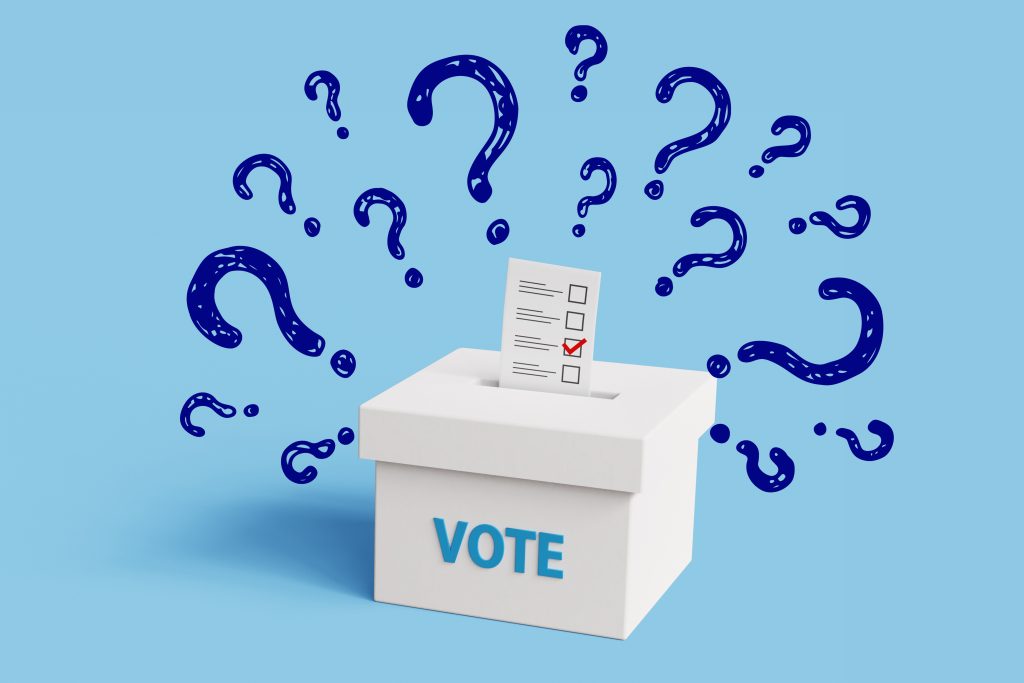
Voting is an important opportunity many of us have waited our entire lives to partake in. Entering college also opens this long-awaited tradition, but there’s not a ton of resources for first-time voters. This can make it overwhelming and may even cause some people to not vote altogether. This is why I’ve compiled all of the information you may need before you vote — from start to finish. This article is purely informational and will focus on Fulton County specifically, but remember that you can vote in your home state depending on the mail-in voting laws. Remember, your vote matters. And by reading this article, you are ultimately setting yourself up for success.
First step: Register to vote
You can register at any time as long as it’s 30 days before an election. It’s a quick and easy process that only takes around three to five minutes. A Georgia driver’s license or state ID is required. There are several ways to register, the easiest option being online. You can also register by mail and in person. Georgia’s election website has all the information you may need, no matter what you decide. If you’ve already registered to vote in Georgia but are worried about your status, you can also confirm that on the election website.
When is Election Day?
Advanced voting begins on Tuesday, Oct. 15 and ends on Friday, Nov. 1. The general election is on Tuesday, Nov. 5. When the time comes, check your local early voting locations on Fulton County’s website.

Can I vote from home?
Yes! Unlike other states, you don’t need an excuse to fill out an absentee ballot. It must be requested beforehand to receive one in the mail. You can fill out the absentee ballot application form online, by mail, or in person. The County Registrar’s office must receive your ballot before the polls close on Election Day for your vote to be counted.
Should I bring anything?
The state of Georgia requires photo identification when voting.
Acceptable IDs for in-person voting:
- Any government-issued photo ID
- Georgia driver’s license, even if expired
- Student ID from a Georgia public college or university (includes your SCAD ID)
- Valid U.S. passport ID
- Valid U.S. military photo ID
- Valid tribal photo ID
Acceptable for absentee voting:
- All of the above
- Any of the following documents that show your name:
- Current utility bill
- Bank statement
- Paycheck
- Government check
If you don’t have any of these but are eligible to vote, you can receive a free voter ID card. The Department of Driver Services or the county registrar’s office can help you with that process. You must provide a photo identity document, documentation showing your date of birth, evidence that you are registered to vote in the state of Georgia, and documentation showing your name and residential address. This card will remain valid as long as you reside in the same county and remain qualified to vote.
If you happen to forget your ID at the poll, a clerk can provide you with a provisional ballot. It has the same information as a regular ballot, but you will need to bring a valid ID within three days of filling out your provisional ballot.
Voting and election laws
Know your rights! You can learn about accessibility laws, federal voting rights, and voter intimidation on the U.S. Government website. Protect yourself and others you know by learning about these laws that protect you.

Districts
Within Georgia, there are 14 congressional districts. The number of districts for each state is determined by the population. The higher amount of people, the more districts there are. For example, New York has 26, while Alaska only has one. A member of the House is elected to represent each district.
As well as electing a member of the House, you will also elect a senator. Each state has two senators who represent everyone. Here is a list of the districts that apply to Fulton County:
- State of Georgia
- City of Atlanta
- Congressional District 5
- State Senate District 36
- State House District 58
- Atlanta Judicial Circuit
- Fulton County Commission District 4
Ballot measures
As of May 21, there are four statewide ballot measures set to appear in the general election in November. Keep track of other local and statewide ballot measures as we inch closer to the general election. We previously covered a referendum that could put Cop City up for a public vote. This, as well as others, could be introduced in the next six months.
Statewide Ballot Measures:
- Tax Court Amendment (HR 598)
- Provide the Georgia Tax Court with judicial power and statewide jurisdiction
- Local Option Homestead Property Tax Exemption Amendment (HR 1022)
- Provide for a local option homestead property tax exemption
- Personal Property Tax Exemption Increase Measure (HB 808)
- Exempts property that is valued at less than $20,000 from the personal property tax
- Statewide Homestead Property Tax Exemption Increase Measure
- Increase the statewide homestead property tax exemption from $2,000 to $10,000
Who can I vote for?
There are still a few runoff votes that will occur during the summer following the Primary Election, but these are the positions we know will be on the ballot:
- District Attorney
- Courtney Kramer (R)
- Fani Willis (D)

- U.S. Representative
- John Salvesen (R)
- Nikema Williams (D)
- President
- Donald Trump (R)
- Joe Biden (D)

It’s very important to update yourself on potential candidates, ballot measures, and other aspects of the upcoming election. Watch debates, read about the candidates, and stay informed to make the best possible decision for not just you, but everyone in the state of Georgia. Happy voting!

























